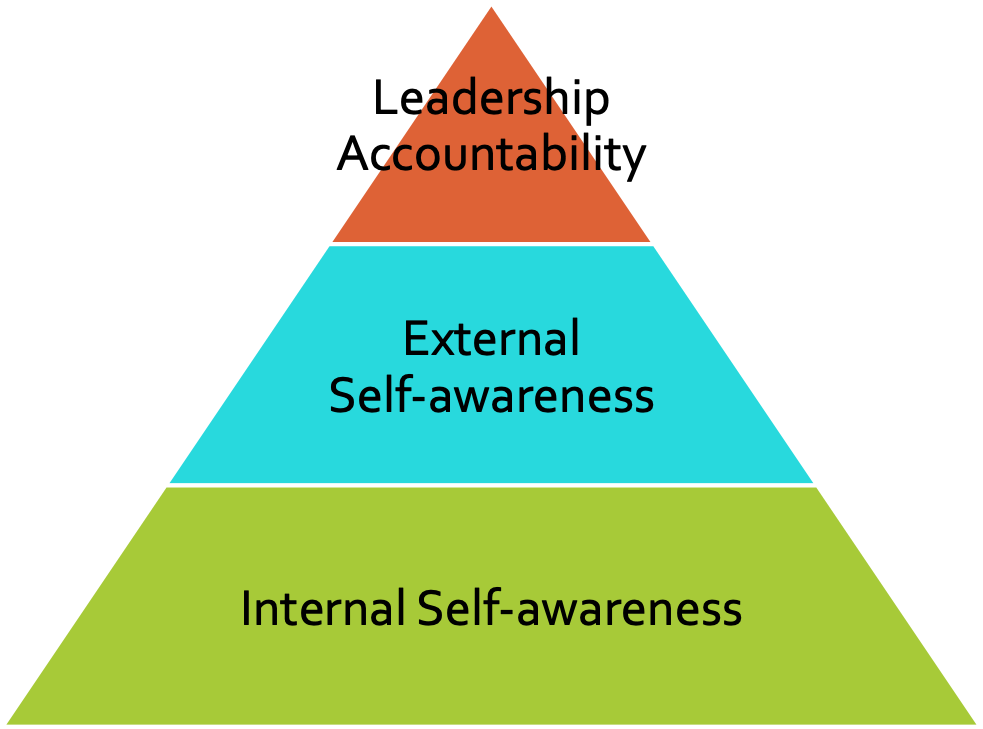![]()
How to Get Over Your Fear of Giving Volunteer Feedback
Does even the thought of giving volunteer feedback make you break out in a cold sweat? Have you been putting off coaching someone because the potential conflict makes you nervous? Is your default to send an email rather than have a crucial conversation face to face?
Don’t worry. You are not alone. Giving others feedback, no matter how constructive, isn’t easy for most of us.
For many reasons this may feel overwhelming or uncomfortable for you. Having direct conversations like these can trigger a raft of emotions lurking below the surface.
You may have had bad experiences with unhealthy conflict in your childhood. You may be afraid of making a mistake or looking unprofessional. You may worry you don’t have enough details to back up your perception of the situation. You may question your expertise and even your right to give anyone feedback at all.
All valid reasons why giving feedback might make you nervous.
But, you’ve got to get over your fears and do it anyway.
Why You Need to Get Over Your Giving-Feedback Fears
First, as a leader of volunteers, giving feedback is a key part of your job. Even if you don’t supervise volunteers day to day, you should be modeling what positive supervision looks like to your co-workers. You need to be ready to help them become better coaches, too.
Second, volunteers want to hear from you. They truly want to do better. They want to know if they are not living up to expectations so they can improve. They want clear, loving, compassionate, and constructive advice from you. In fact, they are probably starved for it.
Don’t believe me? Start asking around: Could you benefit from more feedback about your work? Would it help you feel more comfortable or more effective?
Ask in your volunteer surveys: Rate the quality of constructive feedback you receive (poor <> excellent). Rate the amount of constructive feedback you receive (not enough <> too much).
You’ll soon see.
No volunteer arrives at their shift saying to themselves “My goal is to do the worst job I can today. To absolutely ruin this nonprofit’s chance of being successful. And while I’m at it, let me make everyone else’s life miserable just for good measure. Woo-hoo! Hit it or quit it!”
While it may feel, at times, like one or two of your volunteers has this in mind, I can assure you, this isn’t the case. Doing harm to your organization is not their true intention. If it is, the time to let them go was yesterday! 🙂
So, if coaching isn’t already a key part of your job, it’s time to get comfortable with it. And, we’ve got some ideas for you.
Starting at Ground Zero … Starting with You
While it’s easy to blame volunteers for lack of follow through and call it a day, that’s not going to get you very far. Excellence in supervision and coaching doesn’t start with others, it starts with ourselves.
You simply can’t inspire change in others until your own leadership foundation is in place.
Foundations of Successful Supervision & Coaching

Internal self-awareness is the foundation of it all. So, start by exploring why feedback feels so challenging to you. What are your feelings, beliefs, and values. What is the inner narrative running in your head?
Sometimes our inner monolog can keep us from taking steps forward by throwing a wrench in our confidence and letting us off the hook when it gets too scary: Am I any good at this? If I bring it up, they’re only going to get angry and quit. If I just ignore it, it’ll go away eventually, right?
Internal self-awareness also has to do with how we internalize others’ actions. This often causes problems when we assume lack of caring or bad motive as the ultimate“truth.” Then, it compounds over time as we don’t do the necessary legwork to check our perceptions (which are invariably wrong).
To counteract your knee-jerk reactions — and set the table for better volunteer feedback — pause to reflect on your own emotionally-charged reality. Before you give feedback, ask yourself:
- What emotions am I feeling in this moment?
- How might my core values be impacting my reactions?
- What do I believe to be true about the other person or the situation?
- What facts do I have to support my beliefs?
- What information is still missing that might shift my perception of what’s happening here?
Once you’ve done a thorough inventory of your current reality, you’ll be better prepared and more confident in launching a critical feedback session with a volunteer (or co-worker for that matter).
You also need to do a little work on your external self-awareness. Do you understand how your words and actions impact others? Just as you make assumptions about others’ behavior, so others are attributing motives to you. It cuts both ways.
If you don’t know how volunteers perceive you, ask: What am I doing that is helpful or not helpful? Or, if that feels too vulnerable, ask for feedback through a 360 degree feedback process. Or, simply pay more attention to the body language of volunteers. When you speak, do they lean in or lean back? Do they smile or frown? Do they open up or close down? This will give you clues.
Finally, you need to hold yourself accountable as a leader. That means not only recognizing when there is an issue, but also accepting that you are both part of the problem and part of the solution.
But, how am I part of the problem?
Think about it. As a leader, you are contributing to the situation in some way, if only by allowing it to go on unchecked. And, there may be other ways you’re making matters worse. Take a deep breath and look inside.
Accepting responsibility, however, isn’t the same as accepting all of the blame — a worthless concept when it comes to coaching. So, don’t waste time beating yourself up.
Rather, step up and firmly take on the responsibility for addressing the issue right now.
8 Tips for Getting More Comfortable Giving Volunteer Feedback
Several additional things can help you feel more comfortable in the moment. Here are a few:
1. Set up Dedicated Time to Give (and Get) Feedback
Is it a regularly scheduled monthly meeting, at the 90-day mark of service, at a morning “stand up” check in? You decide what works best based on your work with volunteers.
By setting aside time, and communicating what will happen at these meetings to volunteers, no one will feel blindsided or hijacked. If you establish this time for both giving feedback and receiving it, you’ll soon find you’ve cultivated a wonderful give and take with volunteers.
2. Speak from the Heart
It may seem counter-intuitive, but sharing some of our our own vulnerability will actually help us connect with volunteers more easily in emotionally-charged moments.
It’s perfectly fine to share that you regret you have to have this conversation, that it makes you a little uncomfortable, that you only wish the best for the volunteer. Speaking this way can disarm people and diffuse the situation so you can both get to the real work at hand.
3. Know the Rules
If you’re not sure about a specific policy or your disciplinary procedures, look it up.
Make sure you follow them to the letter.
If you don’t yet have how volunteer performance issues are to be handled in writing, now is a wonderful time to get them in place for the next time around. Be sure to include a grievance procedure, as well, so volunteers have some recourse in the event of an error or unfair treatment.
4. Find Your Mutual Purpose
When things don’t go as planned, it’s easy to fall into an “us versus them” mentality. The problem is these two-sided relationships do more harm that good and can do nothing to help address problems, mend fences, and get on with your day.
Instead, find where your goals intersect. If you struggle to find something in common, revert to speaking about the agency’s mission and speak to your higher purpose.
5. Describe Both Acceptable and Superior Performance
Volunteers may be embarrassed to be the recipient of feedback about poor performance, So, help them save face by offering options.
Describe what’s expected at minimum. Contrast it with what’s been happening. Also, offer up how they might go the extra mile. You may be pleasantly surprised with the results.
6. Ask Questions to Expand Your View of the Issue
Even if you have the most tuned in self-awareness, you’ll miss a few things here and there. When you start a volunteer feedback session, kick it off with some questions. Assume you don’t have the complete picture (because you inevitably don’t).
Even the most intuitive people can’t read minds.
Ask questions so you have a richer picture of what’s going on. After describing what you are seeing, ask: So, what’s the real challenge here? Pause and listen. Then, ask: “And, what else?” Pause and listen. Repeat.
Keep asking one question at a time until you think you have a full picture. Then repeat back what you think you heard. No doubt, you will learn something you didn’t know before.
7. End with Gratitude
No matter how tough it gets, you must take the high road. Re-affirm the volunteer’s value to the organization. Even if you are angry or frustrated, find your gratitude. Even if the issues goes unresolved and the volunteer quits (or you must dismiss them), give thanks.
At the very least, you can be grateful you had another chance to practice your feedback skills. Or, maybe this issue has uncovered a weak link in your training or supervisory processes. Whatever it may be, the experience is valuable.
In the end, this practice will help you maintain resilience and strength going forward.
8. Make Small Adjustments as You Go
Each time you give volunteer feedback, reflect on how it went — both what you think you did well and what you might try differently next time. Resist using phrases like “I should have…” The aim isn’t to make you feel guilty.
Your ultimate goal is to learn from your mistakes so you can keep refining your practice.
Finally, be sure to give yourself a break. Becoming a better leader and manager takes time and practice. It may very well be the most challenging thing you master as a supervisor.
So, give yourself credit for stepping out of your comfort zone.
If you courageously keep moving forward, you’ll find, little by little, your fears around giving volunteer feedback will wane. You may even begin to enjoy it, and your volunteers will welcome it even more than ever.




